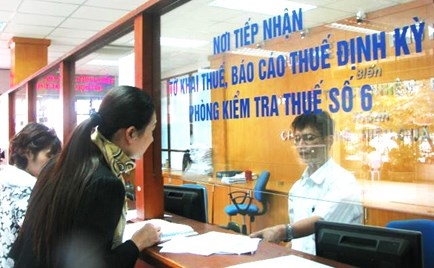“It is unreasonable if the Real Estate Tax Law is built without making any changes in the land use levy collection mechanism and policy”, said Chairman Le Hoang Chau of the Ho Chi Minh City Real Estate Association (HoREA).
In a recent report to the Prime Minister on the Ministry of Finance’s proposal to draft the Real Estate Tax Law, the HoREA leader suggested changing the current land use levy calculation method and replacing land use levy with residential land use tax to be imposed at a rate equal to 10-15 percent of the land price.
The imposition of land use tax upon land allocation by the State or the State’s permission for land use purpose change might reduce provincial budget revenues from land use levy but would lift the burden of land use levy for businesses and land users, lower house prices, and help businesses estimate exact payable land use tax amounts when investing in land-using projects, Chau added.
The Real Estate Tax Law will help the real estate market develop in a sound, transparent and sustainable manner and prevent speculation and wasteful use of real estate, thus shifting investments from the realty sector to production, business and service sectors and increasing supply sources for the market and state budget revenues, he said.
Regarding the real estate tax collection, former Deputy Minister of Construction Nguyen Tran Nam said it was unreasonable not to tax real estate owners who own two or more houses which would be liable to real estate tax, but pointed out difficulties in identifying such persons due to lack of house ownership registration regulations.
Sharing the view, President of the Vietnam Association of Real Estate Professionals Nguyen Van Dinh found it far from easy to tax property, noting that loose real estate regulations may create loopholes in the declaration of second homes.
In this regard, Stephen Wyatt, Country Head of Jones Lang LaSalle Vietnam, said the development of a system to identify and manage real estate buyers would be the biggest challenge for Vietnam to implement the law.
The HoREA suggested developing a national land and real estate database and speeding up the grant of citizen identity cards with personal codes and certificates of land use rights and ownership of houses and land-attached property (also known as “pink-cover” books).
To help stabilize the real estate market, the Association also proposed the National Assembly to empower the Government to enact an anti-hoarding tax and impose a heavy tax on house or land transfers right after purchase.-(VLLF)









